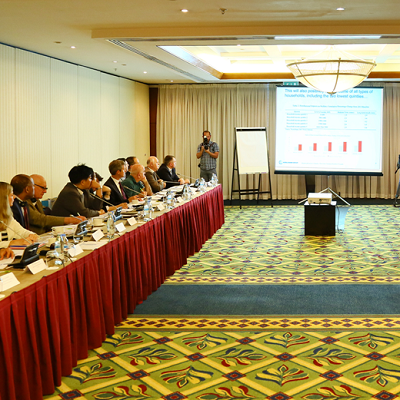The ISET Policy Institute has recently completed a WB-commissioned study to assess the economy-wide benefits of investment in the East West Highway (EWH). We developed a computable general equilibrium (CGE) model simulating the indirect benefits associated with the completion of the upgraded road corridor and related savings in transportation costs (such as reduction in vehicle operating costs and time). According to our estimations, the EWH investment program will have an overall positive impact on key macroeconomic and welfare variables over the medium and long-term. Real GDP is assessed to increase by 1.5 percent over the medium-term horizon and by 4.2 percent over a long-term horizon. Both exports and imports are expected to expand in the long-run by 4.7 and 1.6 percent, respectively. Sensitivity analysis suggests that our results are robust to changes in the modeling parameters.
On June 25th, ISET-PI’s study’s was presented at a Government-Donor coordination meeting concerned with the EWH Corridor Improvement Program. The meeting was jointly organized by the World Bank and Ministry of Infrastructure and Regional Development. It was attended by Giorgi Kvirikashvili, Deputy Prime Minister and Minister of Economy and Sustainable Development; Nodar Javakhishvili, Minister of Infrastructure and Regional Development; Nodar Khaduri, Minister of Finance; and Mr. Henry Kerali, Regional Director of the World Bank for South Caucasus. The main objective of the meeting was to discuss the findings of a feasibility study concerning the Rikoti-Arveti section of the East-West Highway Corridor. Our preliminary conclusions were presented by the WB team leader of the EWH Improvement program, Mustapha Benmaamar, in order to underline the importance of the EWH.
To view the Impacts of East-West Highway Corridor project page please click here.











